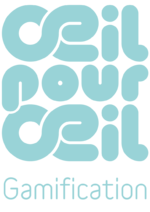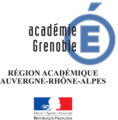LUCIOLE:Accueil
De GBLL, TAL, ALAO, etc.
Révision datée du 11 juin 2018 à 12:50 par Loizbek (discussion | contributions) (→Liste des contributeurs)

|
The FLUENCE e-FRAN project proposes applications developped by 3 labs of the Univ. Grenoble Alpes: LPNC, GIPSA-lab and LIDILEM. This page is dedicated to one of them: LUCIOLE (LUdique au service de la CompréhensIon Orale en Langue Étrangère). |
The FLUENCE project
The LUCIOLE project is a subpart of the FLUENCE project.
Informations Générales

|
|
Presentation
Objectives
FLUENCE aims at developping and validating digital applications used in class so as to adapt to the needs of each children to optimize their learning. Based on research data, it aims at developping fluid and easy reading through specific training targeting underlying cognitive processes (visual/visuo-attentionnal processes) and holistic processes inherent to text reading (orthographical units, prosody, tone groups). Reading speed acts as a catalyst of text comprehension and orthographic learning, the general objectiv is to improve significatively the pupils academic success.
Stakes
One of the core hypotheses of the project is that action games modalities can favor the targeted cognitive processes.
In its longitudinal cycle 2 (6-8 yrs-old) aspect is integrated in a learning difficulty prevention perspective. The 2Modèle:Up aspect of the project, targetting 6ème poor readers (10-11 yrs-old) aims at reducing performance gaps in middle school.
One of the issues is also to provide teachers with an interface allowing them to follow in real time the pupils' progress to provide personnalized pedagogical responses.
In targetting reading fluency and its automation through the use of dedicated digital artefacts, the projects follows the recommandation of the CNESCO 2016 consensus conference: « Lire, comprendre, apprendre : comment soutenir le développement des compétences en lecture ».
The part played by LUCIOLE
LUCIOLE aims at proposing a purposeful task for the placebo group, it thus needs to:
- neither allow the students to work on their reading skills;
- nor resorting to action games modalities.
LUCIOLE's objectives
Through the definition of the experiment plan, the other applications of the FLUENCE project act as a placebo for the LUCIOLE project. Due to the project's onstraint, we can work on diverse set of problems and envision long term research.
First, in learning a foreign language, it seemed that oral comprehension was (at least in 2012) the competence most lacking for French learners[1]. The constraint of not resorting to reading is thus an opportunity with that regard.
The defined game modalities can rely on/illustrate results from usage based grammars work, which, without denying the usefulness of output or other difficulties state:
[…] Usage-Based Theory would predict that with sufficient input and practice, any morphosyntactic pattern can be acquired […] (Bybee, 2008:232)[2]
Beyond more strictly linguistic competences, one of the aims of LUCIOLE is to prepare the child to evolve in an allophone environment in which they won't understand all utterances and favor comprehension strategies.
Finally, the game aspect of LUCIOLE, founded on narrative (among other mechanisms), will allow to tackle the notion of playful attitude[3] [4] and its learning output.
Synopsis
In LUCIOLE, the player plays the part of Sasha, a 8-10 year-old French child who stumbles on a British secret agent (Ash) who ends up recruting him. Through various missions, Sasha (helped by his mentor — Ash — and her friend-secret-agent-trainer — Hartguy) will arrest pet kidnapping bad guys. Their adventures will take them to England where they will have to mingle with (English speaking) bad guys to gather important informations and free the animals. This is how Sasha will develop his English listening skills.[5]
Contributors
Design, content, coordiantion
Implémentation et graphismes
La réalisation du prototype iOS a été confiée à l'entreprise Œil pour œil :
Les voix
Conformément à ses objectifs le jeu regroupe de nombreux enregistrements, et n'aurait pas été possible sans les contributions de nos acteurs :
- Jessica Small ;
- Chris Mitchell ;
- Hugo Almoric ;
- Caroline Schlenker ;
- Marieke De Koning ;
- Thomas Trial ;
- Adam Carter ;
- Róisín Lee ;
- Danielle Wagner.
Librairies open source utilisées dans le système
- ZXing.Net : https://github.com/micjahn/ZXing.Net (licence Apache) ;
- Json.NET : https://www.newtonsoft.com/json (licence MIT).
Soutiens institutionnels du projet FLUENCE
Acteurs
- Logo lidilem-sans font.svg
Partenaires
Financement
Notes et références
- ↑ European Commission (2012). First European Survey on Language Competences. Final Report, April 2012 (lien interne)
- ↑ Bybee, J. Usage-based grammar and second language acquisition
In Robinson, P. & Ellis, N. C. (Eds.) Handbook of Cognitive Linguistics and Second Language Acquisition, Routledge, 2008, 216-226 - ↑ Silva, H. Le jeu en classe de langue CLE International, 2008
- ↑ Brougère, G. Le jeu peut-il être sérieux? Revisiter Jouer/Apprendre en temps de serious game Australian Journal of French Studies, 2012, 49, 117–129
- ↑ Mémoire d'Adrea Soh






